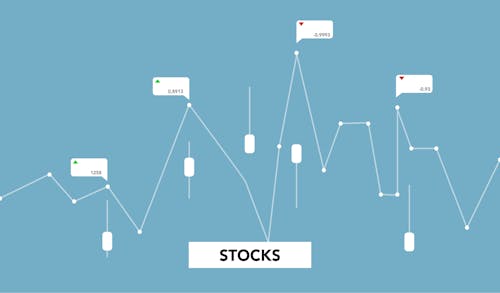
 Image Source: Pexels
Image Source: Pexels
The UK mid-cap index fell to a low not seen in over eight months on Thursday as retail stocks suffered from disappointing Christmas trading reports, while a continued decline in the bond market affected overall market sentiment. Tesco, the largest supermarket chain in Britain, saw its shares drop by 1.7% after it upheld its profit forecast for the full year. Marks & Spencer announced an unexpected 8.9% increase in like-for-like food sales during the Christmas trading period but cautioned about cost and economic challenges ahead, leading to a 5.2% decline in its shares. The retail index fell by 2.9% to reach a near one-year low, with discount retailer B&M plummeting 13.4% after it revised down its annual profit forecast. Greggs Plc experienced a 10.4% drop after the bakery and food-to-go retailer reported a modest 2.5% growth in fourth-quarter like-for-like sales, as budget-conscious Christmas shoppers opted for fewer Festive Bakes, sausage rolls, and gingerbread lattes. The mid-cap index was also affected by a significant rise in British borrowing costs due to concerns over high borrowing levels in Britain and proposed tax increases on businesses by finance minister Rachel Reeves. The yield on the benchmark 10-year gilt has increased by a quarter point this week, reaching its highest level since 2008, while the 30-year gilt has also hit its highest point since 1998. Meanwhile, a decline in the pound has benefitted the exporter-heavy FTSE 100, which rose by 0.4% to a three-week high. Mining companies like Antofagasta, Anglo American, and Rio Tinto saw their shares rise between 2.4% and 4.8% as metal prices increased. Uncertainties surrounding U.S. President-elect Donald Trump’s tariff proposals, along with stronger-than-expected U.S. economic data in recent days, have raised concerns about rising inflation, leading traders to adjust their expectations regarding the extent of rate cuts this year.Single Stock Stories:
Marks & Spencer shares dropped 5.6%, making it the top percentage loser on the FTSE 100 index. The company reported a higher-than-expected 8.9% increase in like-for-like food sales during the crucial Christmas trading period, surpassing analysts’ estimates of a 7.8% rise. The decline in retailers coincided with a continued sell-off in UK gilts, while the pound slumped to its lowest level since November 2023.Britain’s largest supermarket group, Tesco, declined by about 1% after maintaining its profit outlook despite a strong Christmas season. Discount retailer B&M fell approximately 13% after reducing the upper end of its annual profit forecast. Bakery and fast food chain Greggs experienced a nearly 10% drop as its full-year sales growth fell short of expectations. Sainsbury and Associated British Foods each dropped about 3%, while Kingfisher fell by 2.4% and JD Sports Fashion traded 1.6% lower.
Shares of Ferrexpo increased by 4.5% to 97p, making it the top gainer on the FTSE midcap index. The company reported a 66% rise in total production for the fiscal year, reaching 6.8 million tonnes, marking its best annual output since the onset of the Russia-Ukraine war in 2022. Ferrexpo operates three iron ore mines and an iron ore pellet production facility in Ukraine. Panmure Liberum noted that year-end cash of approximately $99 million is encouraging, with Ferrexpo managing to operate at around cash flow break even despite ongoing challenges. The company’s stock has risen about 21% in 2024.
Broker Updates:
Shares of British recruitment firm Hays have fallen approximately 5% to 71.8p, marking their lowest point since July 2013. The stock is among the biggest decliners on the FTSE mid-cap index, which has decreased by 0.8%. Morgan Stanley has downgraded its rating to “underweight” from “equal-weight” and reduced the price target to 70p from 84p. The brokerage stated that the downgrade was prompted by a profit warning from a competitor and concerns over limited free cash flow generation, along with the potential for a dividend cut in 2025. Last month, competitor SThree cautioned that its fiscal year 2025 profit would fall short of expectations, causing Hays’ shares to drop as much as 8.2% on December 12. With the current session’s losses included, the stock is down 10.7% year-to-date.
Technical & Trade ViewFTSE Bias: Bullish Above Bearish below 8225
 More By This Author:Daily Market Outlook – Thursday, Jan. 9FTSE Banks Bid As UK Yields Continue To Rise Daily Market Outlook – Wednesday, Jan. 8
More By This Author:Daily Market Outlook – Thursday, Jan. 9FTSE Banks Bid As UK Yields Continue To Rise Daily Market Outlook – Wednesday, Jan. 8














